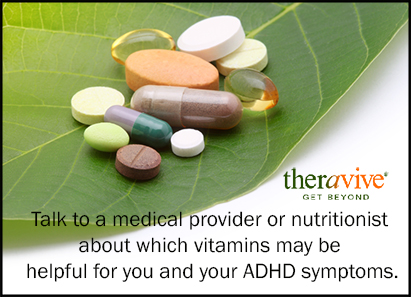 When it comes to managing and treating Adult ADHD things get complicated. Most people would like to believe that taking a stimulant in the morning and at noon would remedy all their symptoms and related problems. That is definitely not the case, though the majority of people who use medication find it helps. Some find the side-effects are intolerable. Others are not willing to take stimulant medication. Regardless, medication is only part of the solution for those who can and will take it.
When it comes to managing and treating Adult ADHD things get complicated. Most people would like to believe that taking a stimulant in the morning and at noon would remedy all their symptoms and related problems. That is definitely not the case, though the majority of people who use medication find it helps. Some find the side-effects are intolerable. Others are not willing to take stimulant medication. Regardless, medication is only part of the solution for those who can and will take it.
As a reminder, the reason ADHD is so difficult to treat is that it exists on a continuum and shows up in some situations, but not others. ADHD symptoms increase when: variables increase (distraction, choices), structure decreases (accountability, deadlines) or during less stimulating tasks (less dopamine is produced).
It is also helpful to remember that the cause of ADHD is believed to be deficiencies in the neurotransmitters dopamine and norepinephrine. Treatment and management of ADHD are about addressing these underlying deficits that cause symptoms.
Diet and Exercise
There are studies and loads of anecdotal evidence to suggest that diet and exercise play a major part in managing ADHD. The dietary recommendations are pretty basic, suggesting that foods high in protein and low in carbs help manage symptoms.
Activities that stimulate, thus releasing these brain chemicals, often provide some temporary relief from the symptoms. Exercise, even in small doses of 5 minutes every hour, is found to have a positive impact on ADHD symptoms. Russell Barkely, an international ADHD expert, suggests a quick walk and protein snack every hour or so for kids and adults who have to sit for extended periods of time. A handful of nuts, protein bar (not loaded with sugar!), peanut butter or other protein snack and a walk around the building is enough to get the brain chemicals fired up – but the effects are short-lived, so the actions need to be repeated every hour or so.
Many who have ADHD symptoms find that food sensitivities (results in a behavioral reaction, instead of allergic reaction) are the cause of the symptoms (as opposed to having true ADHD). Others find that managing food sensitivities decrease their symptoms. Personally, I found that when I stopped eating gluten (wheat, barley, rye) my ADHD symptoms improved about 70%! It was remarkable and unexpected, as the reason I stopped eating gluten had nothing to do with ADHD, but joint pain. Tip: If you have joint pain and ADHD symptoms, talk to your nutritionist or medical provider about trying a gluten elimination test for two weeks. You may find your symptoms improve with each passing day.
Other food sensitivities that may cause ADHD symptoms are food coloring, eggs, soy – it can be anything. The only way to find out is by eliminating the foods individually for a period of time to see if there are changes in the symptoms. A doctor or nutritionist can guide you. In studies with children who had ADHD, 64% showed improvements with dietary changes in one study. Similar results have been found in other studies over the years with up to 78% of the children showing improvement with dietary changes.
There is also sufficient research to indicate that yeast overgrowth may be related to ADHD symptoms. Those who have chronic ear infections, yeast infections and related problems should talk to their medical provider about this connection.
Sugar and caffeine are often used by people with ADHD to help manage symptoms (subconsciously for many). There may be some short-term benefits but the long term results are not worth it. Coffee is another drink that is often used to manage ADHD. In moderation, these products may be safe, but if used on a daily basis, especially if used several times a day to combat symptoms, these are not your best option.
 Vitamins, Supplements and Amino Acids
Vitamins, Supplements and Amino Acids
- Zinc, Iron, and Magnesium
- B Vitamins
- Multivitamin/Multimineral
- Picamilon
- Omega-3 Fatty Acids or Krill Oil
- Ginkgo and Ginseng
- Pycnogenol
- Rhodiola Rosea
- L-Tyrosine (amino-acid)
- Acetyl L-Carnitine (amino acid)
Talk to a medical provider or nutritionist about which of these may be helpful for you.
Specific Techniques and Skills for Specific Symptoms
Learn strategies and techniques to prevent over-scheduling and getting behind to prevent overstimulation that can lead to anxiety.
Many executive functions can be externalized:
- Notes and checklists to help with working memory deficits
- Timers and alarms help with hyperfocus and time management
- Bill Pay can help with money management
- A special location for keys, purse, etc. (called the launching pad)
- Rituals in the morning/evening to launch and land
The hardest thing for Inattentive types are motivation, initiation and follow through.
- We need a certain level of stress to get moving
- Without the rush of dopamine, we often need external motivation (deadlines – invite friends over to get the house clean) and frequent rewards, reinforcement or punishment (can’t do what I want until I do what I need)
- Hire people to do what you can’t or simply won’t, if possible.
- Work with a coach
Teach basic communication skills to improve relationships at home and work:
- Active listening/paraphrasing helps with remembering and clarifying details, expectations and deadlines
- I – messages help with emotional regulation as they learn to identify how they are feeling and own it
- Request things in writing to help with organization and time management
- Role play – many only learn/remember by doing and repetition
Use ‘metta rules’ to help with impulse control and other symptoms. Develop rules to apply to situations that are often difficult to manage:
- Impulse shopping – think about all purchases that are not on the shopping list for 24 hours before acting – cash only – put all bills in the same place and trash junk immediately
- Blurting out comments – write down 1-word reminders of things you want to say and continue to listen
- Remember conversations – make notes of key points
- Complete tasks – note thoughts you want to follow up on or to return to after you complete your current task
- Containment – arms crossed, hand over mouth
- Focus – doodle, rock, sway or fidget
Prevention is the key to managing ADHD-related anxiety.
- Do not over-schedule – leave extra time between all tasks and leave 15 minutes early for work, etc.
- Work with your symptoms – find a job that fits your skills and find a schedule that fits your sleep patterns.
- Stop trying to be perfect – recognize limits and own your mistakes.
- Make it okay to be different – celebrate your differences and help others understand your needs and strengths.
Professional Services
Find a doctor or therapist who specializes in Adult ADHD if you have never been diagnosed but have many of the symptoms over your lifetime. Once you are properly diagnosed, a therapist or coach can work with you to learn the skills and techniques mentioned above. A psychiatrist will need to evaluate you to determine if medication would be helpful. If so, s/he will need to see you monthly for refills as most medications for ADHD are controlled substances and cannot be refilled. A nutritionist can help with diet recommendations and by ruling out any food sensitivities. If you are concerned about yeast or other issues, your primary care doctor may be able to do tests or refer you to someone who help with testing. A functional medicine practitioner is probably your best bet for this.
_________________________________________________________________________________________________________________________________
Newmark, Sandy, MD. "Food Fixes to Ease Symptoms." ADDitude Magazine, Web. 12 Nov. 2013.
Pierce, LuAnn. Clinical Issues in Adult ADHD Treatment. Tech. Print.
Stevens, Laura. "Food Dyes and Hyperactivity in ADHD Children." ADDitude Magazine, Web. 12 Nov. 2013.
About the Author
 LuAnn Pierce, LCSW
LuAnn Pierce, LCSWI am a clinical social worker, therapist and writer. Currently, I offer online therapy and coaching services to people in Colorado and Wyoming. As a provider for the CO Department of Vocational Rehabilitation and the National MS Society, my expertise in counseling people who have disabilities and chronic illness is considerable. I have written for About.com, DailyRx.com, Theravive.com, GoodTherapy.org, SelfHelpMagazine.com and contribute to several other online health and mental health sites.
Office Location:
19th & Dahlia
Denver, Colorado
80220
United States
Phone: 303-910-2425
Contact LuAnn Pierce, LCSW
Professional Website:
http://HireASocialWorker.com